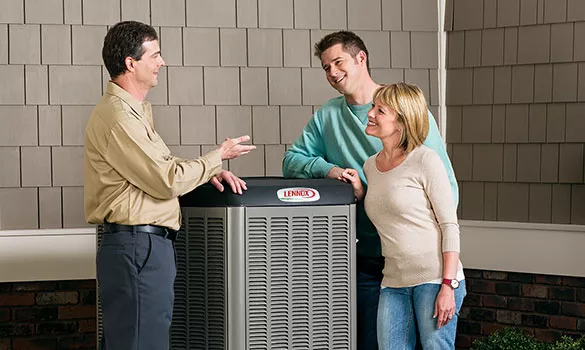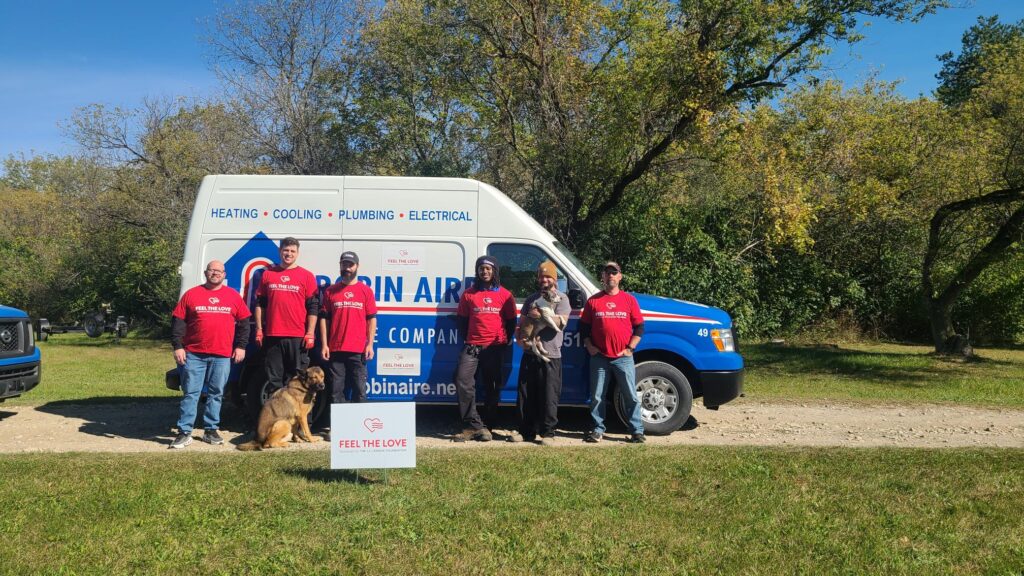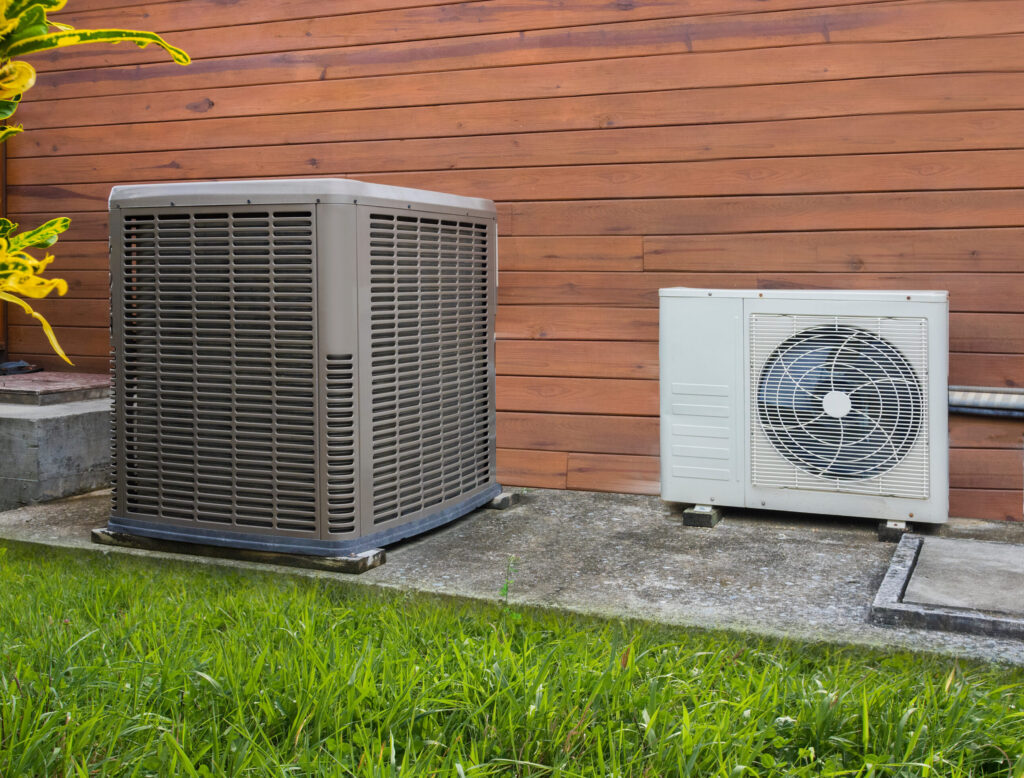Starting on January 1, 2023, all new HVAC installations in the United States were required to meet higher energy-efficiency standards outlined by the U.S. Department of Energy. Each region of the country has different standards, and homeowners in Michigan as part of the North region will have to meet slightly lower efficiency standards than residents of the South or Southwest regions. Meeting these new energy-efficiency standards means that you will pay more upfront for a new heating or cooling system, but you will also pay less each month on your utility bills to operate it.
A system with a higher efficiency rating will use less energy to keep your home comfortable, which not only saves you money for the life of the system, but it also helps the environment.
The Department of Energy has developed a series of energy-efficiency ratings to make it easy for consumers to directly compare different HVAC equipment brands and models to find the best fit for their needs and budget. They include the following measurements:
- SEER: The seasonal energy efficiency ratio measures an air conditioner or heat pump’s energy usage over a cooling season divided by its cooling capacity. A higher number indicates a more efficient unit. The most efficient systems today are 20 SEER or above.
- EER: The energy efficiency ratio of an air conditioner describes its overall energy usage divided by its cooling capacity, with higher numbers indicating more efficient performance.
- HSPF: The heating seasonal performance factor measures a heat pump’s heat output in BTUs divided by the energy used during the heating mode, with higher numbers indicating better performance. The most efficient heat pumps have an HSPF of 10 or above.
- AFUE: The annual fuel utilization efficiency measures the percentage of fuel converted to heat for a furnace or boiler. Today’s most efficient furnaces or boilers have an AFUE of 97% or above.
- BTU: British thermal units describe the heat output required to raise the temperature of 1 pound of water by 1 degree Fahrenheit for heating systems or the amount of heat removed from a room in one hour by an air conditioner.
What Were The Changes for HVAC Regulations?
As part of the North region, heating and cooling systems manufactured after January 1, 2023, have needed to meet the following standards to be installed in a Michigan home:
- Split systems or central air conditioners must be at least 14 SEER to be installed, up from 13 SEER.
- Heat pumps must be at least 15 SEER for cooling and 8.8 HSPF for heating, up from 14 SEER and 8.2 HSPF.
- Furnaces must be at least 81% AFUE, up from 80% AFUE.
In the North region, systems meeting the old standards can still be installed as long as they were manufactured before January 1, 2023. This allows HVAC installers to clear out existing inventory. All newly installed systems must meet the new standards in the South and Southwest regions.
2023 SEER2, EER2 & HSPF2 Ratings
Also, in 2023, new energy-efficiency ratings were introduced by the Department of Energy that better reflect the real-world performance of heating and cooling equipment. These new SEER2, EER2, and HSPF2 ratings will be found on the yellow Energy Guide stickers that help you to compare equipment from different manufacturers. Here is how the new ratings compare to the original SEER, EER, and HSPF ratings:
- An air conditioner rated at 14 SEER will have a 13.4 SEER2 rating.
- An air conditioner rated at 12.2 EER will have an 11.7 EER2 rating.
- A heat pump rated at 8.8 will have a 7.5 HSPF2 rating.
The new and old ratings cannot be directly compared. For example, if you are looking at an air conditioning unit rated with the SEER2 system, compare it only to other systems with a SEER2 rating to gauge performance properly, rather than those with only SEER ratings. Installation requirements for 2023 are based on the original SEER, EER, and HSPF ratings.
Benefits of Updated Energy-Efficiency Standards
By installing an HVAC system that meets the new energy ratings, you will have a heating or cooling solution that offers better efficiency and performance overall. While this may cost more initially, you will save money in the long term with lower utility costs. Plus, you will be using less energy, which lowers your carbon footprint and helps the environment.
Choose Robin Aire Service Company for New HVAC Installation in Michigan
When it’s time to upgrade your heating or air conditioning system, talk to our team at Robin Aire Service Company. We will recommend the best HVAC equipment for your needs, and we can help you find the ideal balance between energy efficiency, comfort, and your budget. We offer HVAC installations and replacements throughout Southeast Michigan, and we feature skilled, HVAC technicians who are friendly, experienced, and background-checked. We are a family-operated company that offers free estimates on heating or cooling replacements, great financing options to make the installation as easy as possible, and upfront pricing so that you always know what you will pay in advance. We are committed to customer satisfaction and quality, which is why we receive so many impressive reviews from our clients.
Make your Michigan home more comfortable and efficient with an HVAC replacement from Robin Aire Service Company. Call or contact us online to schedule service!





